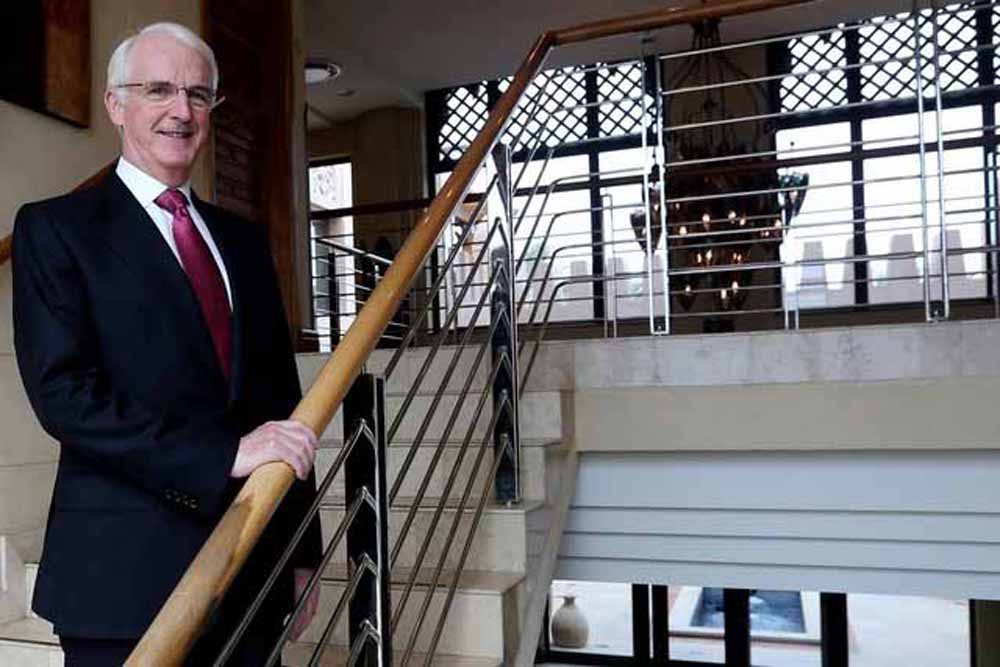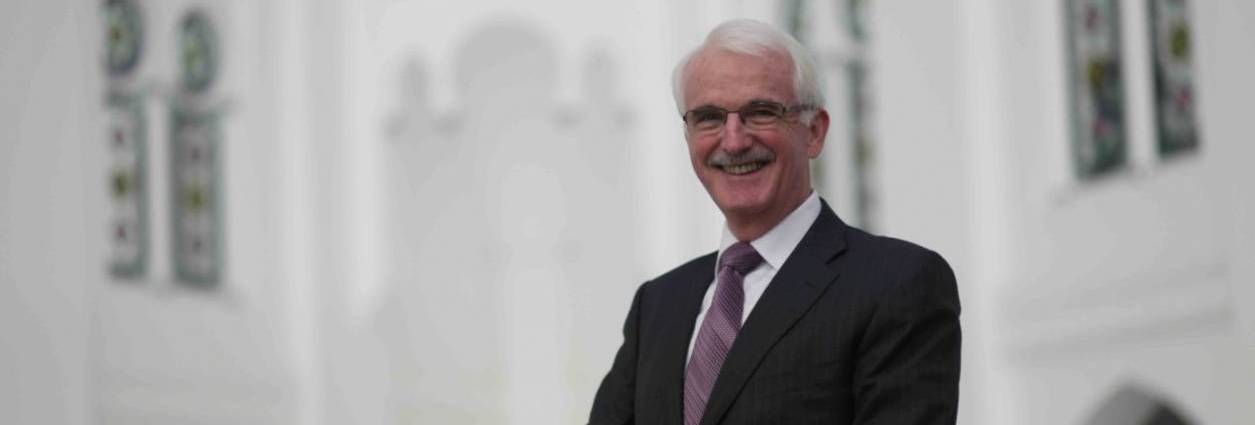The Future's Industry is Tourism, Tourism and Tourism!
By admin Thursday, 08 October 2015 5:58 PM

Gerald Lawless, President and Group CEO of Jumeirah Group, one of the world’s most prestigious hospitality chains, reflects to Aviamost Russian Magazine on the tremendous transformation that is undergoing in the global tourism industry.
Through his highly successful experience in establishing Jumeirah as one of the premier luxury hotel brands in the world, he outlines how he sees the changing dynamics of the industry affecting its progress while highlighting the challenges it faces.
As per the figures of the World Travel and Tourism Council (WTTC), the tourism industry represents a little bit less than 9 per cent of global GDP and is responsible for over 270 million jobs, with the number of travellers growing constantly. However, the tourism sector requires certain stability factors to continue on being a driver of global growth and to allow more people to fly across the globe, hence bridging cultures, developing new lifestyles and embracing new values.
According to Gerald, stability is achieved through a set of government measures such as simplified e-visa, in addition to new policies such as adopting open skies as in Dubai to enable people to fly more and accelerate demand for more hotels, hence enabling more growth. This growth needs careful management, in particular, in the area of human capital development.
In Dubai, if we exclude the World Expo 2020 visitors, hotel establishments will host more than 20 million guests.
Existing room inventory of 90 000 rooms is not enough to satisfy the need of approximately 150 000 rooms which will be required by 2020. So, there is a high potential to develop more hotels by then and beyond, making the industry of the future: Tourism and more Tourism.
You recently announced an exciting project - Jumeirah Al Naseem. How soon will it be inaugurated and what distinguishes it?
Jumeirah Al Naseem will be the final masterpiece of Madinat Jumeirah complex so it will join the grand Jumeirah Al Qasr, the peaceful and recently renovated Jumeirah Mina A’ Salam and the exquisite summerhouses of Jumeirah Dar Al Masyaf - listed by TripAdvisor as one of the Top 25 Hotels in the World.
Jumeirah Al Naseem means a gentle wind or sea breeze in Arabic, and it reflects the location of the hotel on the shoreline of the Arabian Gulf and the open aspect of its design, rich in balconies overlooking the sea. Jumeirah Al Naseem is set to offer a modern-day Arabian experience. It is a very beautiful place with 430 spacious rooms and a great destination for a perfect well-being. We are expecting to open in the second half of 2016.
You have successfully expanded to Russia building Saint Petersburg’s hotel. Kindly share with us some facts about this project.
We are also very excited about this project because the 76-room hotel will be developed within the structure of Wavelberg House, a landmark of national cultural importance built in 1912, which stands on the corner of Nevsky Prospect and Malaya Morskaya Street, one of the most exclusive addresses in St. Petersburg, close to the Hermitage and just 30 minutes from the city’s Pulkovo airport.
Designed by architects HBA/Hirsch Bedner Associates, many original features of the building, including its distinctive façade and marble floor, will be preserved. The hotel will include three restaurants and bars, meeting facilities, a Talise Spa, rooftop hydrotherapy pool and retail space.
Please tell us about your customer base? Have economic changes in developing markets impacted your traffic, in particular Russian and Chinese?
These two markets are very important for us and because we are at the top end of the industry, I think we’ve been in many cases protected from some of the difficulties that have been going on, particularly with regards to the collapse of the Ruble and the Russian market generally. We have not experienced that in Jumeirah Group. Our Russian market has performed very well.
We now have a hotel in Shanghai with an excellent location with respect to traffic. Furthermore, there’s such a high awareness of Dubai for inbound travel thanks to the airlift that we’ve been protected quite a lot from any potential slowing down in the market.
We see the Chinese visitors continuing to grow. At the same time, their required level of luxury from a hotel is changing as well. They are becoming much more individual travellers as opposed to group travellers, which again is really good for the luxury segment.
You are a very successful and respected personality in the Hospitality World. What are your perspectives on the hospitality segment in the future?
Thank you. It gives me great pleasure to learn that, with all due respect. I am very confident that people's wealth goes through ups and downs but generally people become more prosperous. And first they want to do, if they have means and wealth, they want to travel – and we see last year 1.2 billion people travel on international trips worldwide which is truly incredible.
I am also very involved in the World Travel and Tourism Council and they produce figures that show that 8.7% of the global work force is involved in Tourism and Hospitality and I am confident that these numbers will continue to grow. I believe our industry has done a lot for society bringing together different people, different countries, different cultures and different religions, and it will continue to play this role in the future.





























Add new comment